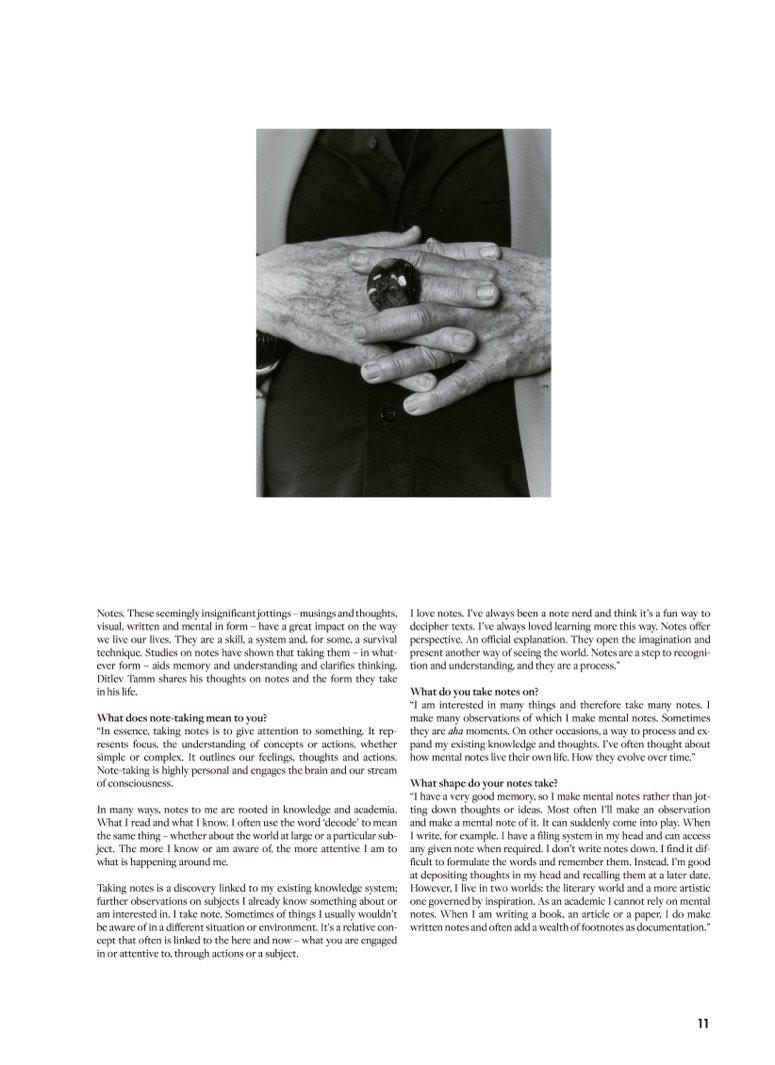
Notes. These seemingly insignificant jottings – musings and thoughts,
visual, written and mental in form – have a great impact on the way
we live our lives. They are a skill, a system and, for some, a survival
technique. Studies on notes have shown that taking them – in what-
ever form – aids memory and understanding and clarifies thinking.
Ditlev Tamm shares his thoughts on notes and the form they take
in his life.
What does note-taking mean to you?
“In essence, taking notes is to give attention to something. It rep-
resents focus, the understanding of concepts or actions, whether
simple or complex. It outlines our feelings, thoughts and actions.
Note-taking is highly personal and engages the brain and our stream
of consciousness.
In many ways, notes to me are rooted in knowledge and academia.
What I read and what I know. I often use the word ‘decode’ to mean
the same thing – whether about the world at large or a particular sub-
ject. The more I know or am aware of, the more attentive I am to
what is happening around me.
Taking notes is a discovery linked to my existing knowledge system;
further observations on subjects I already know something about or
am interested in. I take note. Sometimes of things I usually wouldn’t
be aware of in a different situation or environment. It’s a relative con-
cept that often is linked to the here and now – what you are engaged
in or attentive to, through actions or a subject.
I love notes. I’ve always been a note nerd and think it’s a fun way to
decipher texts. I’ve always loved learning more this way. Notes offer
perspective. An official explanation. They open the imagination and
present another way of seeing the world. Notes are a step to recogni-
tion and understanding, and they are a process.”
What do you take notes on?
“I am interested in many things and therefore take many notes. I
make many observations of which I make mental notes. Sometimes
they are aha moments. On other occasions, a way to process and ex-
pand my existing knowledge and thoughts. I’ve often thought about
how mental notes live their own life. How they evolve over time.”
What shape do your notes take?
“I have a very good memory, so I make mental notes rather than jot-
ting down thoughts or ideas. Most often I’ll make an observation
and make a mental note of it. It can suddenly come into play. When
I write, for example. I have a filing system in my head and can access
any given note when required. I don’t write notes down. I find it dif-
ficult to formulate the words and remember them. Instead, I’m good
at depositing thoughts in my head and recalling them at a later date.
However, I live in two worlds: the literary world and a more artistic
one governed by inspiration. As an academic I cannot rely on mental
notes. When I am writing a book, an article or a paper, I do make
written notes and often add a wealth of footnotes as documentation.”
11

